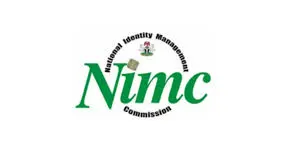By Abimbola Ogunnaike
The National Identity Management Commission (NIMC) has disclosed that it target to enroll 200 million people by 2025 or 2026 , just as it also disclosed that at least 105 million Nigerians with the National Identification Number (NIN) have been registered so far
The NIMC Head of Corporate Communications, Kayode Adegoke, announced this on X Space on Sunday,14 April, 2024.
“As of today, over 105 million NIN have been issued to Nigerians and legal residents. We want to assure Nigerians that within the next one or two years, we will reach our target of enrolling all Nigerians,” Adegoke said.
The NIN, a unique identifier assigned to each citizen, has gained prominence in recent years as the cornerstone of various government initiatives targeted to enable security, governance, and service delivery.
Speaking about the programme, Adegoke said the NIMC remained steadfast in its commitment to achieving universal enrolment in the NIN system by 2025.
The commission’s spokesperson noted that following Abisoye Coker’s appointment as the Director-General of MIMC, she recognised the need to streamline the modification and enrolment processes.
Meanwhile, despite the spread of NIN, the commission has announced to launch another national ID card for Nigerians.
The NIMC in collaboration with the Central Bank of Nigeria (CBN) and the Nigeria Inter-bank Settlement System (NIBSS), will launch the innovative identity solution with payment functionality for all types of social and financial services to be powered by AfriGO, a National domestic card scheme.
The National ID card, which will be layered with verifiable National Identity features, is backed by the NIMC Act No. 23 of 2007, which mandates NIMC to enrol and issue a General Multipurpose card (GMPC) to Nigerians and legal residents.
According to the information, this card will address the demand for physical identification enabling cardholders to prove their identity, access government and private social services, facilitate financial inclusion for disenfranchised Nigerians, empower citizens, as well as encourage increased participation in nation-building.


